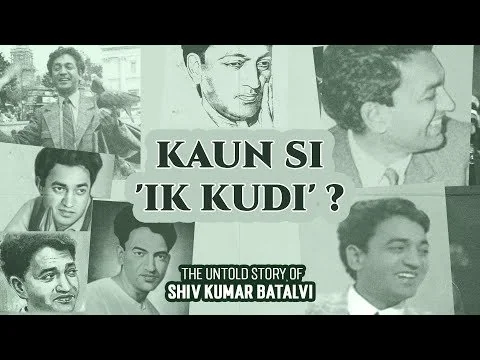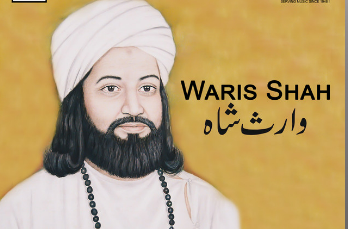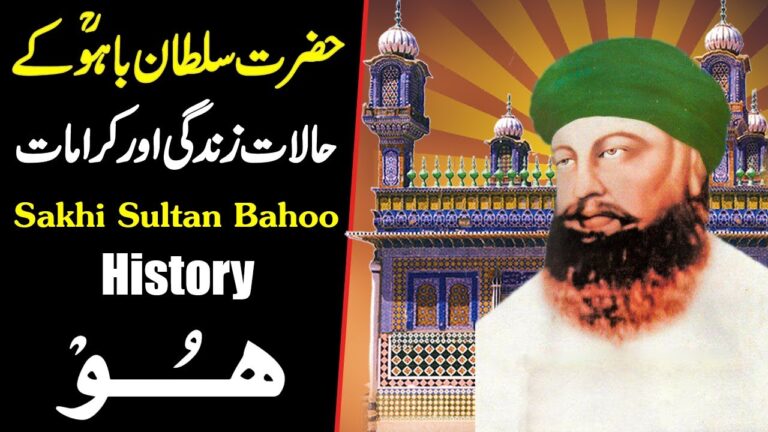Bulleh Shah: The Great Punjabi Sufi Poet and Mystic
Bulleh Shah (1680–1757) is one of the most celebrated Sufi poets in the Punjabi language, whose verses continue to resonate deeply with audiences across the Indian subcontinent. His work, rooted in mysticism and spirituality, reflects his quest for divine love, social justice, and the rejection of orthodoxy. Bulleh Shah’s poetry transcends religious and cultural barriers, making him a timeless symbol of humanism and spiritual liberation. In this article, we will explore Bulleh Shah’s life, his literary contributions, the philosophical underpinnings of his poetry, and his enduring influence on Punjabi culture and beyond.
Early Life and Background
Syed Abdullah Shah Qadri, commonly known as Bulleh Shah, was born in 1680 in the small village of Uch, Bahawalpur (now in Pakistan). He was born into a Syed family, claiming direct lineage from Prophet Muhammad, which gave him a privileged position in society. His father, Shah Muhammad Darvesh, later moved the family to the village of Pandoke, near Lahore, where he served as a preacher and teacher.
Bulleh Shah’s early education was in Islamic studies, which he pursued rigorously. However, his intellectual curiosity soon led him beyond the confines of traditional Islamic thought and toward the teachings of Sufism, which emphasized a direct, personal connection with God. This spiritual journey became central to Bulleh Shah’s poetry and philosophy.
Spiritual Mentor: Inayat Shah Qadiri
Bulleh Shah’s life changed when he became a disciple of Shah Inayat Qadiri, a Sufi master of the Qadiri order. This relationship between Bulleh Shah and his murshid (spiritual guide) became a significant theme in his poetry. Shah Inayat Qadiri not only helped Bulleh Shah transcend his formal religious training but also exposed him to the deeper mystical aspects of Islam, focusing on love and unity rather than ritual and dogma.
The bond between Bulleh Shah and Shah Inayat, however, was controversial. The fact that Bulleh Shah was from a Syed family (believed to be superior due to their lineage) while Shah Inayat was from the Arain caste, a lower social class, challenged the rigid societal norms of the time. This rejection of social hierarchy and caste-based discrimination became a recurring theme in Bulleh Shah’s poetry.
Themes in Bulleh Shah’s Poetry
Bulleh Shah’s poetry is characterized by its simplicity, directness, and depth. He wrote in Punjabi, a language that allowed him to communicate with the masses in a relatable and accessible way. His kafi (short Sufi poems) and doha (couplets) carry profound spiritual and philosophical messages that continue to inspire millions.
1. Mysticism and Divine Love
At the heart of Bulleh Shah’s poetry is the Sufi concept of divine love. He viewed love as the highest form of devotion and the most direct path to God. His famous verse “Bullah ki jaana main kaun” (Bullah, I know not who I am) reflects the deep existential quest for union with the Divine, a central theme in Sufi thought. For Bulleh Shah, love transcended all boundaries of identity—religion, caste, and class—and served as the ultimate form of spiritual awakening.
In his poetry, Bulleh Shah often referred to God as his beloved or friend, expressing an intimate and personal relationship with the Divine. His verses are filled with longing, pain, and ecstasy, emotions that mirror the Sufi tradition of seeking union with God through love and devotion.
2. Rejection of Orthodoxy and Social Conventions
Bulleh Shah was a vocal critic of religious orthodoxy and the rigid, institutionalized practices of religion. He challenged the clergy, the scholars, and the societal elites who, in his view, used religion for power and control rather than for the genuine pursuit of spirituality. His disdain for empty rituals, superficial piety, and the division of society based on religion and caste is evident in many of his works.
He criticized the hypocrisy of religious leaders who preached the word of God but lacked true compassion and spiritual insight. His famous verse “Masjid dha de, Mandir dha de, dha de jo kuchh dhainda” (Tear down the mosque, tear down the temple, tear down whatever stands) is a bold call to reject all outward symbols of religion that serve to divide rather than unite.
3. Universal Humanism and Social Justice
Bulleh Shah’s poetry also reflects his commitment to universal humanism and social justice. He believed in the equality of all human beings, regardless of religion, caste, or creed. His poems are filled with empathy for the poor, the marginalized, and the downtrodden. Through his verses, he advocated for a society based on love, compassion, and justice.
In a time of rigid social hierarchies, Bulleh Shah’s teachings were radical. He rejected the idea that one’s worth was determined by birth, status, or wealth. Instead, he emphasized that true worth comes from one’s inner spiritual state and connection with the Divine. His focus on the universality of the human experience resonates deeply with contemporary ideas of equality and human rights.
4. Self-Realization and Inner Transformation
A key theme in Bulleh Shah’s poetry is the concept of self-realization. He urged his readers to look inward, to embark on a journey of self-discovery that would lead them to God. Bulleh Shah believed that external forms of worship were secondary to internal spiritual transformation. His verses often stress the importance of understanding one’s own soul in order to achieve union with the Divine.
In his poem Bullah ki jaana main kaun, Bulleh Shah explores the theme of self-realization. The poem highlights the poet’s quest to know his own identity, which ultimately leads him to the realization that true knowledge is beyond the self and that union with God requires transcending the ego.
The Structure and Language of Bulleh Shah’s Poetry
Bulleh Shah’s poetry is marked by its simplicity and directness. He wrote primarily in Punjabi, which made his work accessible to the common people. His use of the kafi form—a short, lyrical poem used in Sufi tradition—allowed him to express complex spiritual ideas in a way that was easy to understand and emotionally powerful.
His language was colloquial, drawing from the everyday speech of the people of Punjab. This linguistic simplicity, combined with the emotional depth of his themes, gave his poetry a universality that transcended the boundaries of religion and culture.
The musicality of Bulleh Shah’s poetry also played a significant role in its popularity. His verses are often sung in qawwali, kafi, and folk traditions, and many classical and contemporary singers, including Abida Parveen and Nusrat Fateh Ali Khan, have immortalized his work through their renditions.
Bulleh Shah’s Legacy and Cultural Influence
Bulleh Shah’s influence on Punjabi culture is immense. His poetry has been passed down through generations, both in written form and through oral traditions. The themes of love, spiritual awakening, and social justice in his works have made him a symbol of resistance against religious orthodoxy and social injustice.
1. Influence on Sufi Music and Folk Culture
Bulleh Shah’s poetry has a long-standing connection with Punjabi folk culture and Sufi music. His verses, filled with spiritual longing and love, are often sung in the form of qawwalis, kafis, and other traditional music forms. Sufi singers such as Abida Parveen, Nusrat Fateh Ali Khan, and many others have brought his works to life, keeping his message alive in contemporary times.
His poetry has also found resonance in modern forms of music, such as rock and fusion, further demonstrating the timeless appeal of his words. Musicians around the world have drawn inspiration from Bulleh Shah’s verses, bringing them to diverse audiences.
2. Cross-Cultural and Religious Appeal
Bulleh Shah’s poetry transcends religious boundaries. Though he was a Muslim Sufi, his verses are revered by people of all faiths, including Hindus and Sikhs. His message of love and unity resonates deeply with people from different religious and cultural backgrounds, making him a unifying figure in the divided landscape of the Indian subcontinent.
3. Literary and Academic Influence
Bulleh Shah’s work has also had a lasting influence on Punjabi literature and academic study. Scholars have studied his poetry for its literary, philosophical, and spiritual insights. His works have been translated into multiple languages, allowing his message to reach a global audience. Many literary figures, including poets and writers, continue to draw inspiration from his simple yet profound expression of spiritual truths.
Conclusion
Bulleh Shah’s legacy as one of the greatest Sufi poets of the Punjabi language remains unparalleled. His poetry, rooted in mysticism, divine love, and social justice, challenges religious orthodoxy, societal norms, and the rigidity of caste-based hierarchies. Bulleh Shah’s verses continue to inspire countless individuals, from scholars to everyday people, who seek truth, love, and spiritual enlightenment.
His work not only captures the essence of Sufi philosophy but also offers a universal message of humanism and equality. In a world often divided by religion and social barriers, Bulleh Shah’s poetry serves as a reminder of the power of love, unity, and the quest for divine truth. His words, sung and recited for centuries, remain a beacon of hope, transcending the limitations of time and place.





